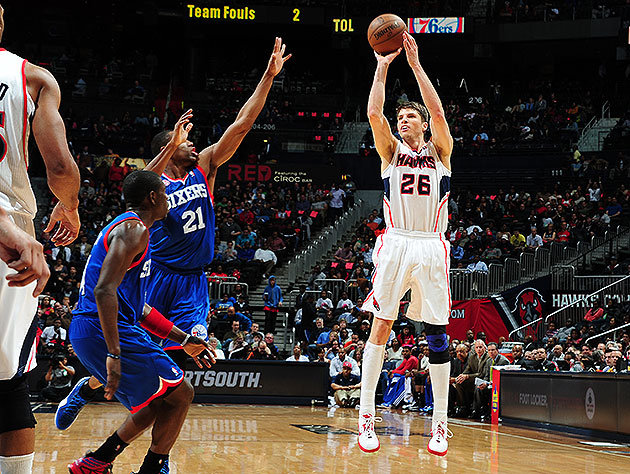You should never be surprised by someone that works for you
Well, probably not 'never', but certainly not very much, and not when the 'surprise' is that the employee is really, really, really talented at something related either to their actual job or more generally to your business.
The context of the notion that you, ('you' being a manager, leader, business owner, etc.), should have a strong sense of both the capabilities, and more importantly perhaps, the potential of the folks on your team. I know, not exactly some kind of breakthrough idea, right? HR and business leaders have been plotting folks on the 9-box Performance/Potential grid for years and years. In fact, there are at least a dozen really cool software programs that will help you automate and streamline and enhance the entire 9-box exercise.
But so what, really? None of that matters if there aren't strategies in place to actually action the results of the exercise.
Here's the specific example that I heard discussed recently on of all things, Bill Simmons' BS Report podcast, which is usually about sports topics. On this particular episode, Simmons and his guest were discussing TV talk shows, specifically the Daily Show on Comedy Central.
Last Summer, The Daily Show's host John Stewart took an extended sabbatical from the show in order to work on a movie project. In his stead, Comedy Central slotted show contributor John Oliver in Stewart's place to host the show for a few months while Stewart was on leave.
And long story short, Oliver killed it. He was funny, clever, and once his extended run was complete filling in for Stewart, he has suddenly in demand. He had many more options than perhaps he would have had he not been given this kind of showcase opportunity from Comedy Central. But once the guest run was completed, Comedy Central, perhaps surprised by how well Oliver performed in the 'top' job at the Daily Show, was left kind of stuck - at the they did not have a similar, high-profile kind of role to offer Oliver, and as was brought up by Bill Simmons on the podcast, they did not have Oliver contractually locked up into continuing on with Comedy Central at all.
Long story short, Oliver moved on to HBO where his new show, 'Last Week Tonight with John Oliver', has launched to critical acclaim and pretty significant buzz (amongst folks who care about these things).
And Comedy Central is left wondering just how they managed to let Oliver walk, particularly when just a few months later another network star, Stephen Colbert, announced he was leaving to eventually become the replacement for CBS legend David Letterman on his talk show.
In theory, better planning and understanding of their talent on Comedy Central's part might have led to a much more beneficial outcome for the network all around. Their #1 star Stewart, gets a needed break to re-charge and explore some important personal projects, a highly capable team player, Oliver, gets a chance to prove himself, and eventually slot into the #2 role, Colbert's when he leaves.
Except that is not, in fact, what is happening, and Comedy Central is left wondering how they let Oliver go to (possibly) become a bigger star somewhere else.
Hey, it happens. Maybe Comedy Central did know just how talented Oliver was, and just did not care that much. That is pretty bad.
But maybe they were actually surprised by how good he was, and if so, that is even worse, because if you are really managing and engaging with talent, and not just playing with names on a 9-box, you should never really be surprised by someone that works for you.

 Steve
Steve



